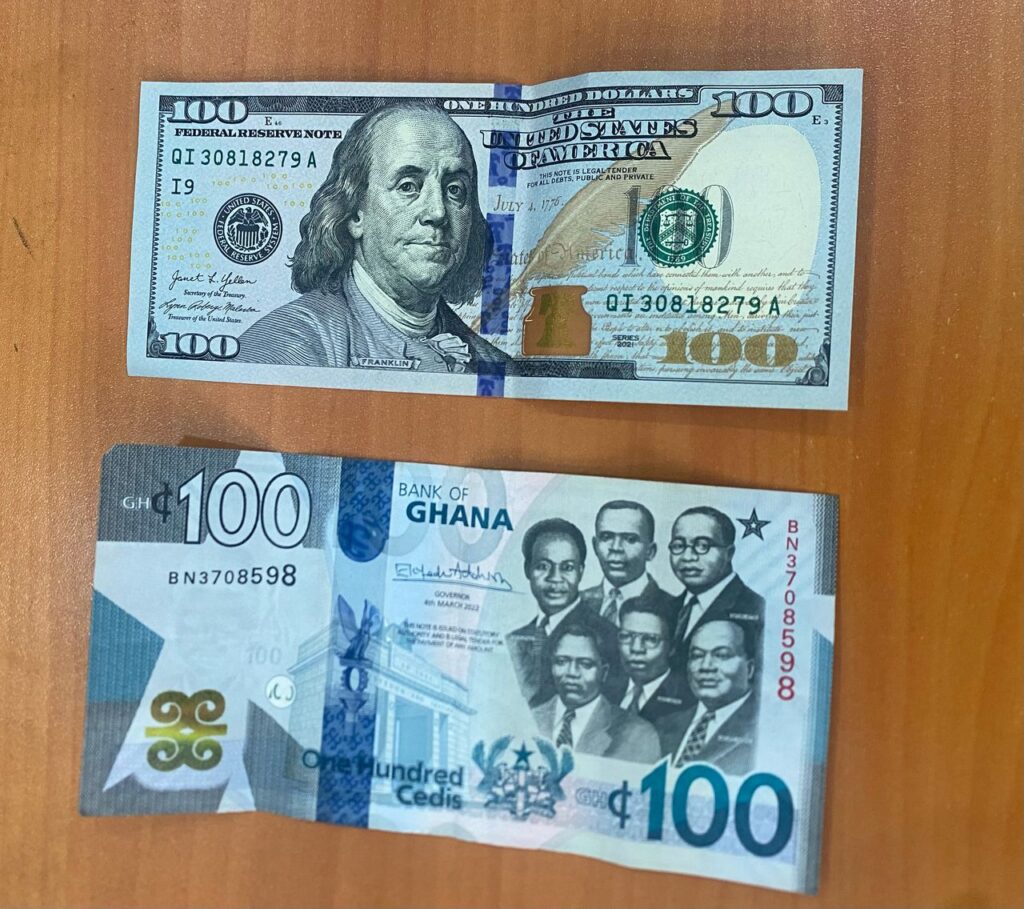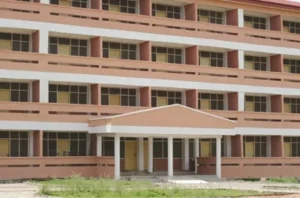
Ghana’s cedi could strengthen to GH¢10 per US dollar if key government initiatives, such as the 24-hour economy and agricultural modernization, are successfully implemented, according to financial economist Professor Lord Mensah.
Currently, the cedi trades at around GH¢15 in local forex markets and GH¢14.15 on the official market, showing some recovery from its earlier decline to GH¢16 earlier in the year, based on Bank of Ghana data.
Professor Mensah attributes this gradual appreciation to improved fiscal management and economic discipline. In a social media post on May 3, 2025, he noted that “fiscal consolidation and financial discipline” are driving the cedi’s upward trend. He expressed confidence that once key government policies take full effect, the exchange rate could reach GH¢10 to the dollar.
While some analysts have linked the cedi’s recovery to movements in global dollar strength, Mensah pointed to domestic reforms as the main contributors. These include tighter government spending and increased investor trust in policy initiatives. The 24-hour economy plan is expected to boost employment and attract international investors by extending working hours across industries. At the same time, agricultural reforms targeting food security and export expansion could reduce import dependency and strengthen the local currency.
However, experts caution that achieving and maintaining this level of currency appreciation will require more than policy ambition. Success depends on consistent policy implementation and resilience to external factors like commodity price fluctuations and global financial dynamics. Hitting the GH¢10 mark would be a significant psychological achievement, symbolizing macroeconomic stability—something that remains a challenge for developing economies during global economic transitions.
Ghana’s approach reflects broader strategies used by countries such as Rwanda, which managed to stabilize their economies through focused reforms after periods of hardship. Ultimately, Ghana’s ability to maintain momentum will hinge on its commitment to reforms and flexibility in navigating both domestic and international economic pressures. The months ahead will likely test the government’s ability to deliver on its promises while addressing long-standing structural challenges.
Frequently Asked Questions (FAQ) – Cedi Appreciation & Government Economic Policies
1. What is the current exchange rate of the Ghana cedi to the US dollar?
As of now, the cedi trades at approximately GH¢15 to the US dollar in forex bureaus and GH¢14.15 on the official market, showing improvement from earlier lows of GH¢16.
2. What is the projected exchange rate if government policies succeed?
Financial economist Professor Lord Mensah projects the cedi could strengthen to GH¢10 to the dollar if policies like the 24-hour economy and agricultural modernization are effectively implemented.
3. What is the 24-hour economy policy?
It is a government initiative aimed at expanding business operations and employment opportunities by encouraging round-the-clock economic activity across various sectors.
4. How would the 24-hour economy impact the cedi?
By boosting productivity, reducing unemployment, and attracting foreign investment, the policy is expected to strengthen economic fundamentals, which can contribute to cedi appreciation.
5. What role does agricultural modernization play?
Reforms in agriculture aim to increase local food production, reduce reliance on food imports, and grow exports—measures that can improve trade balances and support currency stability.
6. Why is fiscal discipline important for the cedi’s performance?
Maintaining reduced government spending and ensuring prudent financial management helps build investor confidence and limits inflation, both of which support a stronger currency.
7. Are there risks to this projected appreciation?
Yes. External factors like global commodity prices, geopolitical tensions, and market volatility can affect Ghana’s economic performance and currency strength, regardless of policy efforts.
8. Is this appreciation guaranteed?
No. While the projection is based on current trends and policy expectations, actual results depend on consistent implementation and the ability to navigate unforeseen economic challenges.
9. How does Ghana’s strategy compare internationally?
Ghana’s focus on structural reforms and economic discipline mirrors strategies used by countries like Rwanda, which successfully stabilized their currencies through long-term reforms.
10. What should citizens and investors watch in the coming months?
Key indicators include progress on policy rollouts, macroeconomic data, investor sentiment, and how Ghana responds to shifts in global markets.





